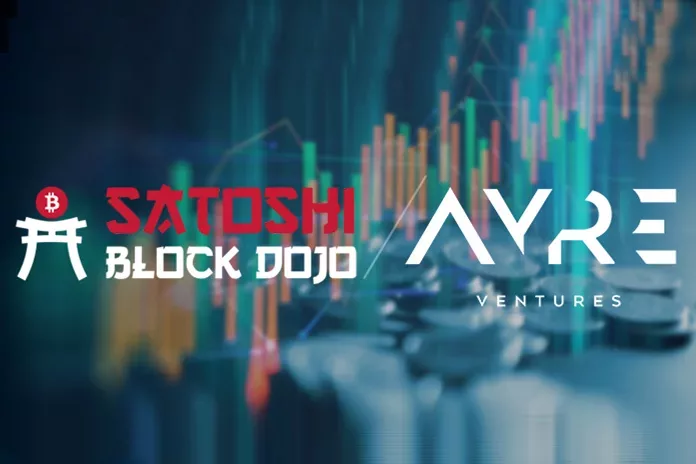News & Views
AI needs guardrails; enterprise blockchain has a role to play
In an astonishingly brief period, artificial intelligence (AI) has gone from the stuff of science fiction to a very real presence in the here and now, with significant ramifications for the world as we know it.
Not a day goes by without fresh reports of AI making further inroads—welcome or unwelcome—into different avenues of society. These reports illustrate AI’s capacity to disrupt any number of sectors, everything from business, the arts, science, government operations… few sectors appear immune.
All disruptive technologies spark similar concerns, stretching back to the original Luddites following the introduction of machinery into English textile mills in the early 1800s. I’m not yet convinced that AI must inevitably lead to the kind of malevolent ‘self-aware’ systems envisioned in the Terminator movies—although James Cameron is already making the rounds warning of the dangers of AI’s weaponization—but there will definitely be people who’ll need to retrain for different skills as AI’s capacities grow.
The growing awareness of AI’s capabilities followed the public being granted access to a number of programs that create text, images, videos, and musical compositions based on text prompts. The resulting creations left a lot of users slack-jawed after reading, seeing, or hearing the seemingly impossible.
As might be expected, some AI-generated images, videos, and music are better than others. The image software can struggle to render things like hands, while many of the singers belting out other people’s songs are easily detectable as bogus.
There are concerns regarding AI text generators’ tendency to sound authoritative even when they’re talking utter bullshit—potentially fatal bullshit. A New Zealand grocery chain recently found itself doing damage control after its in-house chatbot responded to a customer prompt for making an economical meal from water, ammonia, and bleach. The resulting ‘Aromatic Water Mix’ suggestion was, in reality, a recipe for chlorine gas, which hasn’t been popular since World War I.
The need for adult supervision
Public opinion may be split on whether AI will be our savior or our downfall, but one thing is clear: it can’t be the former without some technological guardrails, which is where enterprise blockchain comes in.
The basic problem with large language model (LLM) text generators is a formula as old as time: garbage in = garbage out. Simply put, randomly ingesting all available online information will invariably suck in as much bogus data as verifiable truth.
There are also occasions when AI makes up what it doesn’t know. Consider the lazy lawyers who submitted an AI-generated court filing rather than spend time doing their own research. Their failure to abide by the ‘trust but verify’ maxim led to their being sanctioned by a court for attributing fake opinions to real judges. (The court of public opinion may yet leave these attorneys without a practice.)
The situation will get progressively worse as AI models reabsorb AI-generated ‘alternative facts,’ making each new iteration that much further from the truth. Conversely, an AI model trained purely on authentic data from publicly verifiable sources would be a world-beater.
Research groups would benefit from a blockchain-backed AI system by allowing end users to confirm that reports and studies do, in fact, represent the legitimate output of these entities.
Blockchain-based AI could also ensure artists of all sorts (verbal, visual, aural, etc.) are properly compensated for derivative works based on their creations, assuming that ownership of those original creations is registered on the blockchain.
One chain to rule them all
Which is where the BSV Blockchain comes in. BSV is the only blockchain that has proven its ability to scale unbounded, making it the only blockchain capable of handling the immense data management needs of enterprises and governments. (BSV also stands alone as the only digital asset that doesn’t have to worry about financial regulators classifying it as a security rather than a currency.)
BSV is also the only blockchain capable of completing the internet’s development. It’s the only chain capable of handling the immense volume of new addresses possible under IPv6. The only chain that’s also economically equipped to handle all this data, thanks to transaction fees measured in fractions of a penny.
For a while, all you heard from ‘crypto’-focused VCs was the promise of Web3, but that roar has since become a whisper. It wasn’t because Web3 was a bad idea; it was because none of the blockchains that these VCs supported could scale to the level necessary to take Web3 beyond the theoretical.
Web3 is about reversing the transfer of power that occurred between the internet’s early days and the Web2 centralized data-harvesting model that followed. Returning control over personal data to the end user will allow individuals to effectively negotiate who has access to their data, how much of that data can be accessed, how often and for what purpose.
The role that an infinitely scalable blockchain will play in realizing all of the above was all the justification Ayre Ventures needed when it recently made the single-largest blockchain IP investment to date. The CHF500 million ($549.2 million) equity acquisition of nChain was based on its patent library, which Forbes described as impacting “everything from the US$1 trillion cryptocurrency market to corporate implementations built by some of the largest companies in the world.”
Technological advances can (and do) inspire both optimism and fear, but it’s up to us to determine how these technologies impact society. With a little help from blockchain, AI doesn’t present any challenges that we can’t meet while offering opportunities too good to pass up.


